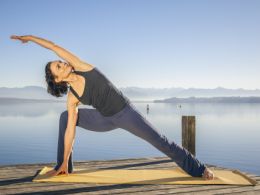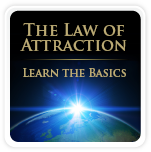-
 Love &
Love &
Relationships -
 Money &
Money &
Success -
 Mind &
Mind &
Spirit -
 Health &
Health &
Wellness -
 Inspirational
Inspirational
Videos -
 Spiritual
Spiritual
Coaching -
 Life
Life
Coaching
Which Yoga Style is Best for You?
There are many forms of Yoga to choose between. Some are physically strenuous, while others focus more on meditation. If you are new at Yoga, the variety of Yoga styles might be confusing. But don’t worry. Below is a short list on the most common Yoga styles, to help you find the perfect Yoga for you!
 Asana – Pranayama – Prana
Asana – Pranayama – Prana
First, it’s important to understand some basic words that you will come across as you read about Yoga: Asana, Pranayama and Prana.
- Asana means Yoga postures or Yoga positions.
- Pranayama is the art of breathing control to extend life force, Prana.
- Prana is the life force energy that is all around us and within us.
Let’s us now guide you through some of the most well-known Yoga styles. Below is a short description of 7 very popular Yoga styles to help you find the one that is best suited for you. Each Yoga style focuses on different aspects.
1. Hatha Yoga
HathaYoga is the most popular Yoga style in the West. Hatha means sun and moon. Hatha Yoga uses body and breathing exercises to gain control over the energy in the body and mind. This energy is called Prana in Yoga. If you achieve control of Prana, you will also automatically achieve control over your mind, because Prana and mind are interrelated. The advantage with Hatha Yogais that it is often easier to start with a more physical form of Yoga, than with a Yoga style that focuses on mind exercises.
2. Power Yoga
PowerYoga is also a well known Yoga style in the West. Power Yoga is a powerful, physical form of Yoga that is practiced worldwide. Several types of exercises are combined in order to train balance, flexibility, breathing and strength. At the same time, Power Yoga reduces stress and tension around the joints and muscles. The goal with PowerYoga is to experience a maximum feeling of energy, freedom and vitality.
3. Kundalini Yoga
KundaliniYoga came to the West in the late 1960s and has become very popular for the past ten years. Kundalini Yoga works with physical exercises, meditations, mantras, and various hand positions, called Mudras. You are totally focused within yourself as you practice Kundalini Yoga; usually with your eyes closed and with full attention on the exercise.
4. Raja Yoga
Raja Yoga is essentially a mental training exercise as it focuses on relaxation, concentration and meditation. The purpose of Raja Yoga is to direct Prana, the life force, and bring balance to your mind and emotions. Raja Yoga helps releasing meaningless thoughts and worries, and brings a sense of well-being. Raja Yoga can help you feel more positive about yourself and about the world around you.
5. Jnana Yoga
JnanaYoga is also known as “the intuitive way of wisdom” and seeks an answer to the question “who am I?”. JnanaYoga is a Yoga style that involves meditation and observation on yourself and how you experience your surroundings.
6. Karma Yoga
KarmaYoga can be translated as “the active Yoga in everyday life”, or as “meditation in action”. Karma Yoga stresses an attitude of selflessness towards your fellowman. The important thing is to act with full attention in the present moment – relaxed and aware.
7. Bhatki Yoga
BhaktiYoga is usually called “Yoga of devotion”. The person’s feelings are channeled in one direction, for example, to mantra, symbol, breathing, or human person / role model. BhaktiYoga includes lots of singing, music and dance.
Before making any choice, try out a few common Yoga styles. If you are an athlete, go for a Yoga style that focuses on flexibility, but if you are not as flexible, try a more gentle form of Yoga. Also, find a teacher that you feel comfortable with. Enjoy your new life with Yoga!


















